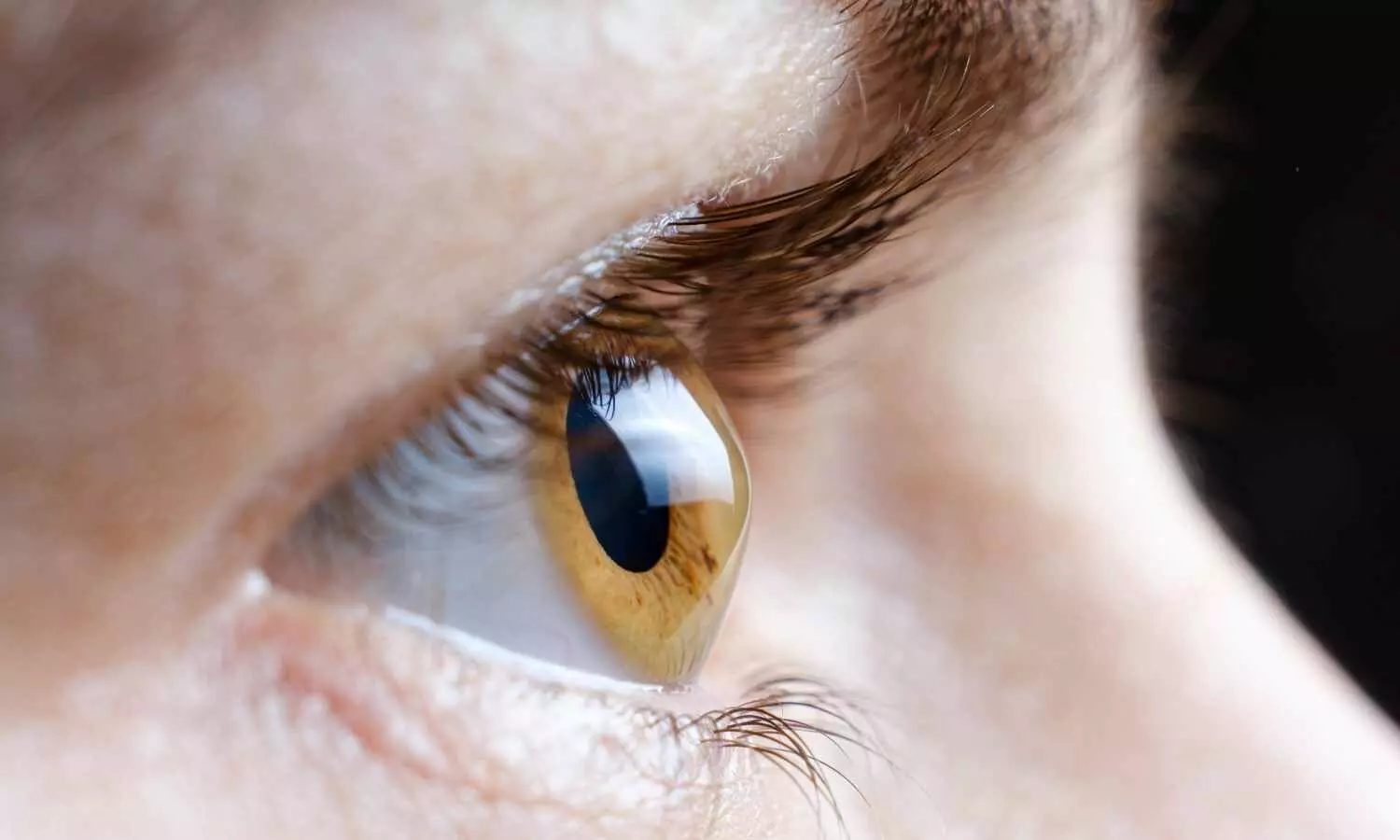High glucose levels in people with diabetes linked to tripling of eye disease risk: Study
- byDoctor News Daily Team
- 28 October, 2025
- 0 Comments
- 0 Mins

Older people withdiabeteswho do not keepblood sugarlevels low are three times more likely to develop eye disease compared to counterparts who have reduced blood sugar levels, suggests a new study by a UCL team. The study, published in the journalBMJ Open, looked at survey data for 5,600 people aged 52 and over in England across 14 years. The researchers found that people with “uncontrolled” diabetes – that is, whose blood sugar levels were high at the start of the study – had a 31% chance of developingdiabetic eye diseaseover 14 years. In contrast, people diagnosed with diabetes whose blood sugar levels were found to be within a “normal” range at the study’s start had a 9% chance of developing the disease over the same time. The group with diabetes who had high blood sugar levels (above 6.5% on a HbA1c test, which reflects blood sugar levels over two months) were also more likely to develop two other eye diseases, glaucoma and macular degeneration. In addition, people who had undiagnosed diabetes had a higher risk of developing eye disease than those who had had a diagnosis but had reduced their blood sugar levels. Specifically, people with undiagnosed diabetes were 38% more likely to develop macular degeneration over the 14 years than those with controlled diabetes. They were also 23% more likely to develop diabetic eye disease. Co-author Dr Stephen Jivraj, of the UCL Institute of Epidemiology & Health Care, said: “The number of older people with diabetes in England is expected to increase rapidly in coming years. In the 2000s, the proportion of working-age people with a diabetes diagnosis more than doubled, from 2.8% to 6.8%. “These findings show how important it is that people with diabetes are diagnosed and are supported in managing the condition, as this will reduce their chance of potentially debilitating eye disease.” First author Caitlin Lin, who is now a PhD candidate at the UCL Global Business School for Health, said: “The study highlights the importance of eye examinations among those in older age, especially those with a diabetes diagnosis. It also supports wider testing for diabetes in the general population, to reduce the number of people who do not realise they have the condition and could therefore be at a higher risk of eye disease than if they had a diagnosis.” Diabetic eye disease most commonly refers to diabetic retinopathy, where high blood sugar levels damage the retina at the back of the eye. People with diabetes also have an increased risk of glaucoma (damage to the optic nerve connecting the eye to the brain), macular degeneration (where the central part of the retina, the macula, becomes damaged) and cataract (where the lens in your eye becomes cloudy). However, some researchers have suggested the link between diabetes and some eye diseases may be due to greater monitoring of the eyes of people with diabetes. For the new paper, Ms Lin and Dr Jivraj used 14 years of data from the English Longitudinal Study of Ageing (ELSA), in which a nationally representative population sample in England answers a wide range of questions every two years. They calculated the odds of developing eye diseases over that time period among different groups (those without diabetes and those with undiagnosed diabetes, uncontrolled diabetes and controlled diabetes), adjusting for other factors that could have skewed the results, such as age, smoking status and levels of physical activity. Two years after the study’s start, the predicted odds of developing diabetic eye disease were 5% for the diabetes group with lower blood sugar levels and 7% for the diabetes group with higher blood sugar levels. By the end of the study, the odds were 9% and 31% respectively. The researchers did not find a difference between the groups in the likelihood of developing cataracts. Among the study’s limitations, the authors noted that the number of people responding to the surveys fell by more than half by the end of the study period, which could potentially bias estimates of the odds of developing eye disease. Lin C, Jivraj SAre diabetes and blood sugar control associated with the diagnosis of eye diseases? An English prospective observational study of glaucoma, diabetic eye disease, macular degeneration and cataract diagnosis trajectories in older ageBMJ Open 2025;15:e091816. doi: 10.1136/bmjopen-2024-091816
Disclaimer: This website is designed for healthcare professionals and serves solely for informational purposes.
The content provided should not be interpreted as medical advice, diagnosis, treatment recommendations, prescriptions, or endorsements of specific medical practices. It is not a replacement for professional medical consultation or the expertise of a licensed healthcare provider.
Given the ever-evolving nature of medical science, we strive to keep our information accurate and up to date. However, we do not guarantee the completeness or accuracy of the content.
If you come across any inconsistencies, please reach out to us at
admin@doctornewsdaily.com.
We do not support or endorse medical opinions, treatments, or recommendations that contradict the advice of qualified healthcare professionals.
By using this website, you agree to our
Terms of Use,
Privacy Policy, and
Advertisement Policy.
For further details, please review our
Full Disclaimer.
Recent News
Merck Keytruda wins European Commission nod for lo...
- 30 October, 2025
UP NEET 2025 round 3 allotment results postponed
- 30 October, 2025
Achin Gupta to succeed Umang Vohra as Cipla MD, GC...
- 30 October, 2025
Mumbai shocker: KEM Hospital doctor stabbed by col...
- 30 October, 2025
Daily Newsletter
Get all the top stories from Blogs to keep track.


0 Comments
Post a comment
No comments yet. Be the first to comment!